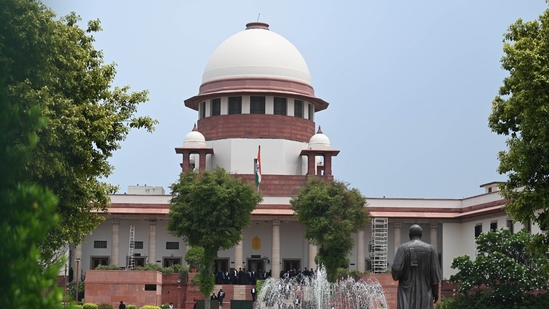Supreme court sets 3-month deadline for president to decide on bills
The top court also said that in the case of any delay, appropriate reasons have to be furnished, otherwise it would be considered blocking the state machinery.
The Supreme Court stated that the President should decide on bills reserved for her consideration by the governor within a period of three months from the date when it was referred.

In a 415 page judgement, the bench of Justices JB Pardiwala and R Mahadevan on April 8, cleared 10 bills which were stalled and reserved by Tamil Nadu's governor RN Ravi for the President's assent, according to a news agency PTI report.
Also Read: Supreme Court sets deadline for expert panel on packaged food warning labels
They stipulated a timeline for all governors to act on bills passed by state assemblies, and said, “We deem it appropriate to adopt the timeline prescribed by the Ministry of Home Affairs and prescribe that the President is required to take a decision on the bills reserved for his consideration by the Governor within a period of three months from the date on which such reference is received.”
The top court also stated that in case of any delay, an appropriate reason should be provided to the state government.
Also Read: Interview: Supreme Court timeline to decide on bills overreach, says Kerala governor
In case a situation arises where the governor reserves a bill for the consideration of the President and the President in turn withholds assent, the state government could take action in court.
As per Article 200 of the Constitution, the governor can give assent to the bill presented, or withhold assent and reserve it for the consideration of the President.
Governors cannot use ‘absolute veto’
While the Constitution does not mention a time period for providing assent, to delay a bill for an “unduly long period of time,” would be considered as causing a “roadblock in the law-making machinery of the state.”
The apex court set timelines and stated that failure to comply with it would make the inaction of the governors subject to judicial review by the courts.
Also Read: Delhi has not filed a single claim on hit-and-run case portal, SC told
"In case of either withholding of assent or reservation of the bill for the consideration of the President, upon the aid and advice of the State Council of Ministers, the Governor is expected to take such an action forthwith, subject to a maximum period of one-month," the report quoted the court.
The bench added, "In case of withholding of assent contrary to the advice of the State Council of Ministers, the Governor must return the bill together with a message within a maximum period of three months.
The bench said that the governor couldn't sit over bills and adopt the concept of "absolute veto" or “pocket veto,” as their constitutional powers were not supposed to be used arbitrarily.
(With inputs from PTI)






